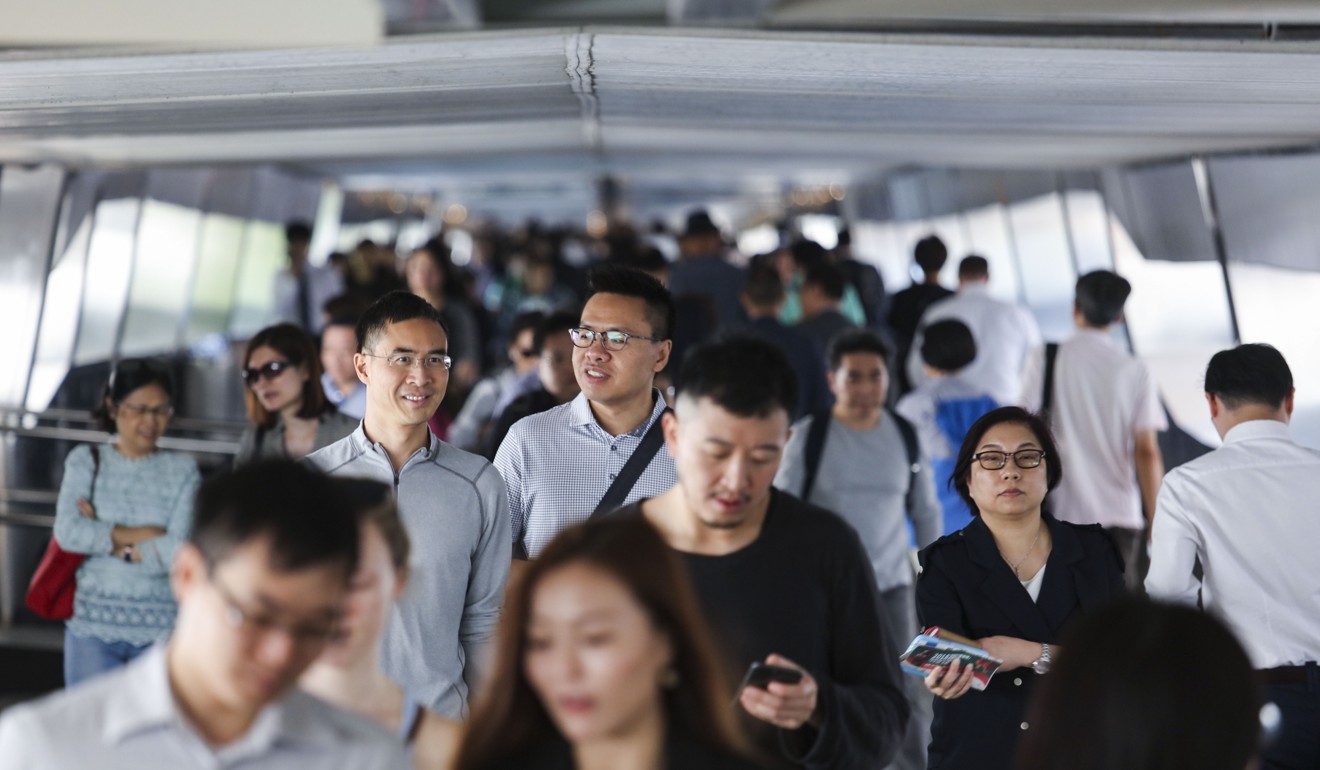
Without MPF fix, Hong Kong employees could lose nearly all their employers’ retirement contributions, labour chief says
As SMEs voice scepticism over proposal, government pledges to fulfil its ‘moral obligation’ to help businesses in new system
Hong Kong workers could lose almost all of their employers’ contributions to their retirement fund if bosses were allowed to continue to dip into their pension savings for severance and long-service payments, the labour minister warned yesterday.
Employers match the 5 per cent of salaries that workers must contribute to the compulsory fund, and companies are now allowed to withdraw from MPF accounts to “offset” long-service or severance payments.

While Law said the government would fulfil its “moral obligation” and help employers who may struggle under the proposed system to scrap the offset mechanism, it could not budge on the timeline to effect the change or subsidise them indefinitely.
The city’s MPF scheme provides pension coverage for 2.8 million working adults.
On a radio programme on Saturday, Law pointed to challenges Hong Kong faces amid its ageing population. Currently, one in six of the city’s 7.4 million residents is a senior citizen. By 2041, one in three will be aged 65 or over.
I have never publicly vowed to tackle Hong Kong’s ‘three mountains’: Carrie Lam
“If we do not do this long-term planning properly for retirement protection today, society has to bear the responsibility,” he said.
Law believed the costs could end up being borne by businesses through profit taxes.
If we do not do this long-term planning properly for retirement protection today, society has to bear the responsibility
But he added that the policy change entailed “a moral obligation for the government to help employers adjust gradually so that they can absorb the additional cost”.
The calculation of severance and long-service payments would remain unchanged at two-thirds of an employee’s final month of wages multiplied by the number of years of service, capped at HK$390,000.
Employers would need to set up a savings account and contribute the equivalent of 1 per cent of employees’ wages to cover relevant payments in the long term.
Law said there was still room to discuss and amend the plan, acknowledging that SMEs were unhappy with the proposal.
Hong Kong leader Carrie Lam pledges decision ‘as soon as possible’ on ending MPF offset scheme
“We have to cancel [the MPF offsetting mechanism],” he said. “This cannot be delayed.”
But Stephen Kwok Chun-pong, president of the Small and Medium Enterprises Association, said on a separate radio programme on Saturday that SMEs would be hit hard by the plan.
Citing government data, Kwok maintained that after cancelling the offsetting mechanism for 10 years, 51 per cent of SMEs hiring fewer than 10 people would not have enough balance to pay severance and long-service payments. Even after 20 years, the figure would only drop to 44 per cent, he said, with the businesses needing to dig into their own pockets.

Kwok claimed there were 330,000 SMEs in Hong Kong, accounting for 98 per cent of all businesses in the city.
“SMEs are very weak, and we do not want to see a cancellation of the MPF offsetting mechanism compromise our survival,” he said.
“This will result in monopolies by large corporations and inflation going up.”
Hong Kong’s MPF reports average loss of 2.94 per cent in February after 13 months of gains
Kwok added that consumers would eventually suffer.
He cited cleaning companies as one example of a threatened industry, as they typically saw a profit margin of less than five per cent. Kwok said employee salaries in the sector comprised about 70 to 80 per cent of expenditure and that the firms were often on government contract, resulting in their having to make severance payments after two years.
Unless these companies had reserves, they could be forced to close, he said.

